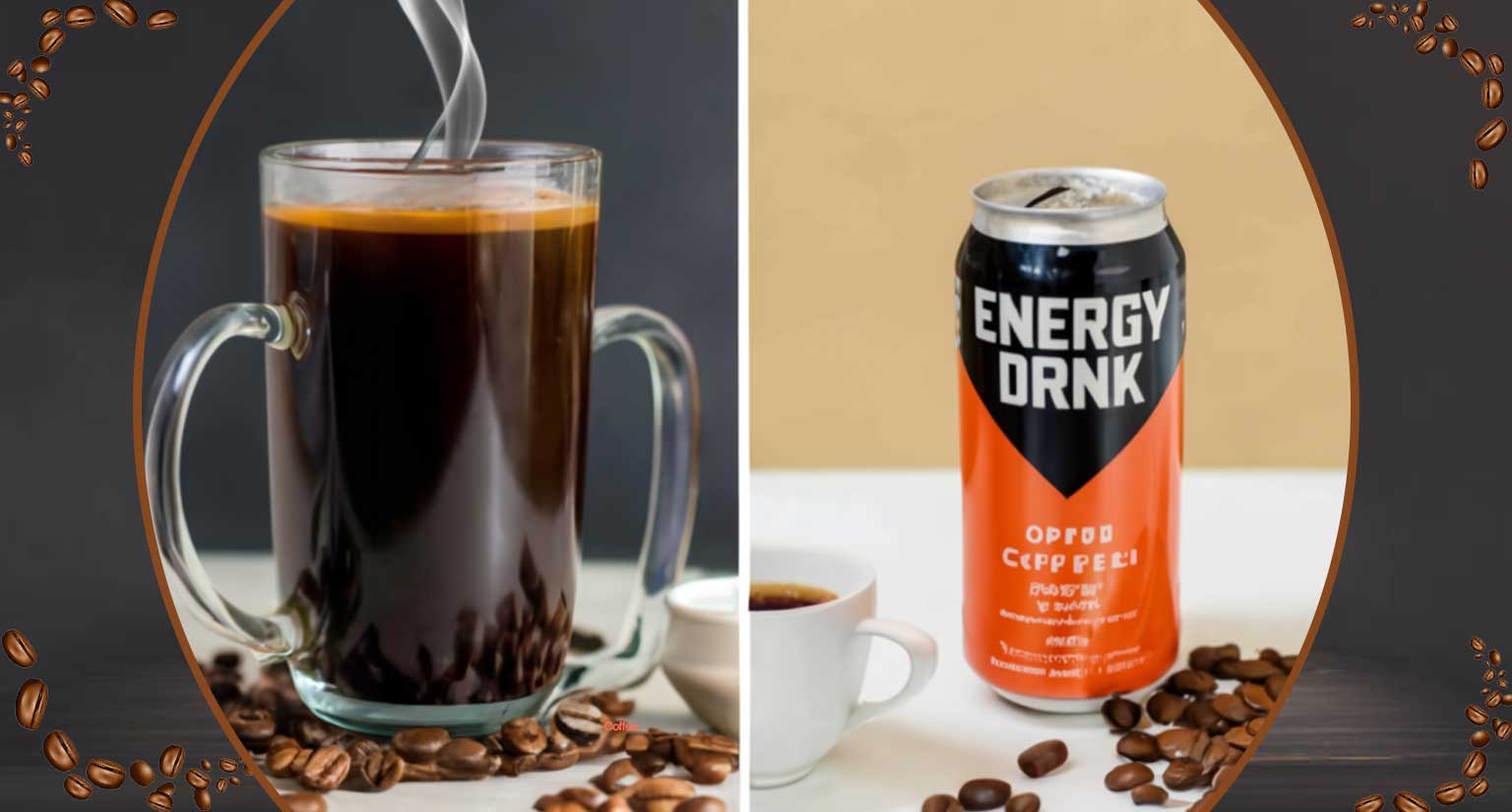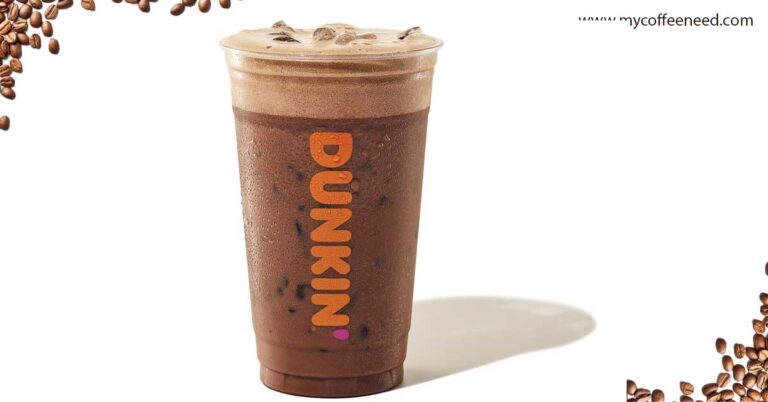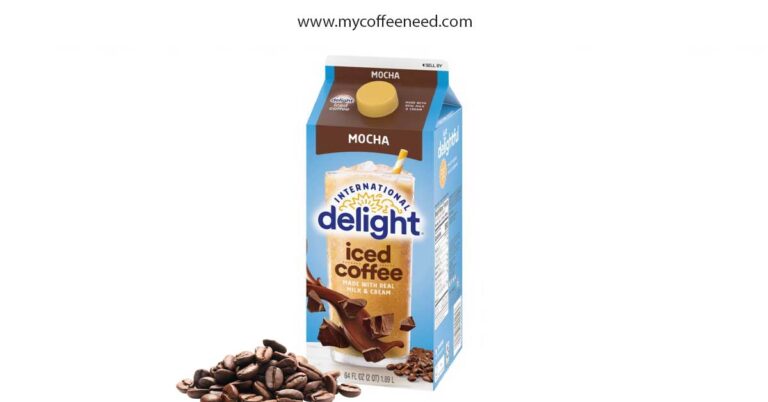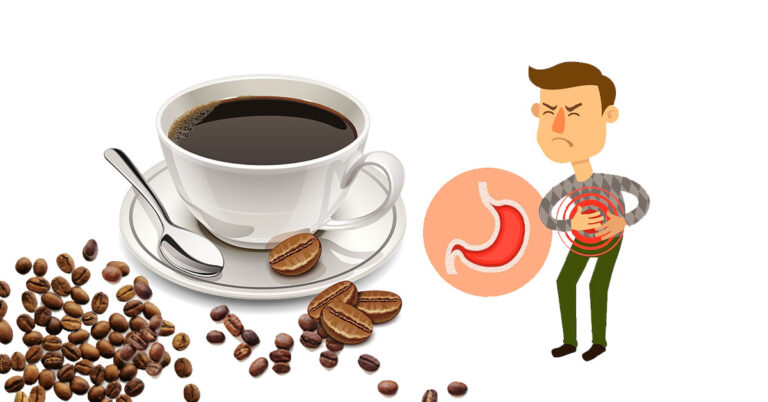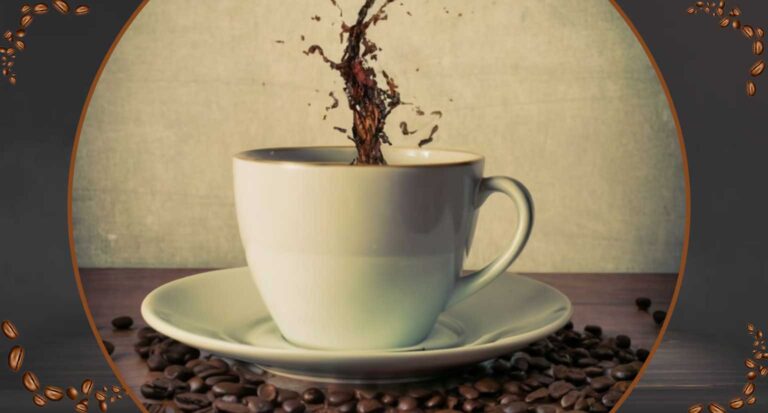Is Coffee Better Than Energy Drinks? 5 Key Factors to Compare
In the fast paced rhythm of modern life, the quest for the perfect energy boost is relentless. Unveiling the age old debate, Is Coffee Better Than Energy Drinks? becomes essential. In this exploration, the nuances, benefits and impact on your vitality.
Unearth the secrets behind each sip and make an informed choice for an energized lifestyle. Embrace the coffee culture or revel in the thrill of energy drinks, the choice is yours.
Which Is Healthier Coffee Or Energy Drinks?
When it comes to assessing the health benefits of your daily pick me up, the debate between coffee and energy drinks rages on. Let’s dissect the nutritional profiles and physiological impacts of each to determine which concoction stands as the healthier choice.
Coffee
Coffee, revered for centuries, offers more than just a morning jolt. Packed with antioxidants and essential nutrients like riboflavin, pantothenic acid and manganese, a cup of joe can elevate not only your energy levels but also contribute positively to your overall well being.
Moreover, research suggests potential health perks, such as a reduced risk of type 2 diabetes, Parkinson’s disease and certain cancers, linked to moderate coffee consumption.
Energy Drinks
In contrast, energy drinks, laden with stimulants like caffeine, taurine and sugar, deliver an instant surge of vitality. However, their composition often raises concerns regarding adverse health effects.
Excessive consumption of energy drinks has been associated with heightened heart rate, increased blood pressure and disrupted sleep patterns. Furthermore, the excessive sugar content in many energy drinks poses a risk of weight gain, insulin resistance and dental problems.
The Verdict: Moderation and Mindfulness
While both coffee and energy drinks can provide a quick energy boost, the key lies in moderation and mindful consumption. Opting for black coffee or lightly sweetened varieties can harness the benefits of caffeine without the added sugars and artificial additives prevalent in many energy drinks.
Ultimately, making informed choices aligned with your health goals and lifestyle remains paramount in the ongoing debate over which brew reigns supreme.
While coffee emerges as the healthier option due to its natural composition and potential health benefits, moderation remains the golden rule for harnessing the energy boosting properties of both coffee and energy drinks.
Are Energy Drinks More Harmful Than Coffee?
The realm of caffeinated beverages unveils a nuanced landscape of potential risks and rewards. In the discourse surrounding energy drinks and coffee, the question arises, Are energy drinks inherently more harmful than coffee? The evidence to illuminate the comparative hazards of these popular stimulants.
Energy Drinks
Energy drinks, characterized by their high caffeine content and cocktail of additives, raise red flags within the realm of public health. The excessive levels of caffeine found in many energy drinks can trigger adverse effects ranging from increased heart rate and blood pressure to palpitations and even cardiac arrhythmias.
Moreover, the combination of caffeine with other stimulants like taurine and guarana may exacerbate these risks, leading to heightened physiological stress responses and potential long term health consequences.
Beyond caffeine, the copious amounts of sugar prevalent in most energy drinks pose a separate set of health hazards. Excessive sugar consumption has been linked to obesity, insulin resistance and an increased risk of metabolic disorders, casting a shadow over the purported benefits of energy drinks as sources of instant energy.
Coffee
Contrastingly, coffee emerges as a comparatively safer option when consumed in moderation. While coffee’s caffeine content can induce similar physiological responses as energy drinks, the absence of artificial additives and lower sugar content in most traditional coffee preparations mitigates certain health risks associated with energy drinks.
Furthermore, research suggests that moderate coffee consumption may confer a spectrum of health benefits, including reduced risk of cardiovascular diseases, neurodegenerative disorders and certain cancers.
The presence of antioxidants in coffee lends additional support to its potential protective effects against oxidative stress and inflammation, further bolstering its reputation as a relatively health conscious choice among caffeinated beverages.
Informed Choices and Responsible Consumption
In the ongoing debate between energy drinks and coffee, the key lies in informed decision making and responsible consumption practices. While energy drinks may offer a quick fix for fatigue and lethargy, their potential health hazards necessitate caution and moderation.
Options for alternatives such as black coffee or green tea can provide a natural energy boost without the added sugars and artificial additives prevalent in many energy drinks.
Ultimately, striking a balance between enjoyment and vigilance remains paramount in safeguarding one’s health amidst the myriad options available in the caffeinated beverage landscape.
By prioritizing moderation and mindfulness, individuals can navigate the complexities of caffeinated consumption while minimizing potential risks and maximizing the benefits inherent in their beverage choices.
How Much Sugar Is In Each Beverage?
In the realm of beverage consumption, understanding the sugar content of your favorite pick me ups is paramount for making informed dietary choices. To quantify the sugar content in both coffee and energy drinks to shed light on their nutritional profiles.
Coffee
Traditionally prepared coffee, whether enjoyed black or with a splash of milk, boasts a minimal sugar content. In its purest form, black coffee contains negligible amounts of sugar, making it a favorable option for those mindful of their sugar intake.
Even with the addition of sweeteners or flavored syrups, the sugar content in coffee remains relatively modest compared to many other caffeinated beverages.
Energy Drinks
Conversely, energy drinks often serve as veritable sugar bombs, inundating consumers with high levels of added sugars to enhance flavor and palatability. Many commercially available energy drinks contain staggering amounts of sugar, with some popular brands packing as much as 30 grams or more per serving.
The excessive sugar content in energy drinks not only contributes to their caloric density but also poses significant health risks, including weight gain, insulin resistance and an increased risk of metabolic disorders.
Sugar Savvy Strategies
When navigating the sugar content of beverages, opting for alternatives with minimal added sugars can promote better health outcomes and support overall wellness goals. Choosing unsweetened or lightly sweetened coffee varieties, such as cold brew or espresso based drinks, allows individuals to savor the rich flavors of coffee without the unnecessary sugarloaf.
Additionally, exploring sugar free energy drink options or alternatives sweetened with natural sweeteners can help mitigate the adverse effects associated with excessive sugar consumption.
Empowering Health Conscious Choices
In the ongoing quest for health conscious beverage options, understanding the sugar content of coffee and energy drinks is paramount. While coffee emerges as the clear winner in terms of minimal sugar content, the excessive sugar levels found in many energy drinks underscore the importance of vigilance and moderation in beverage selection.
By prioritizing beverages with lower sugar content and exploring alternative sweetening options, individuals can take proactive steps towards optimizing their dietary habits and fostering long term well being.
Conclusion
In the timeless debate of coffee versus energy drinks, the verdict ultimately hinges on individual preferences, lifestyle considerations and health priorities. While coffee boasts a natural composition and potential health benefits, energy drinks offer convenience and instant energy in a single can.
However, the key lies in moderation, mindfulness and aligning beverage choices with personal wellness goals.

